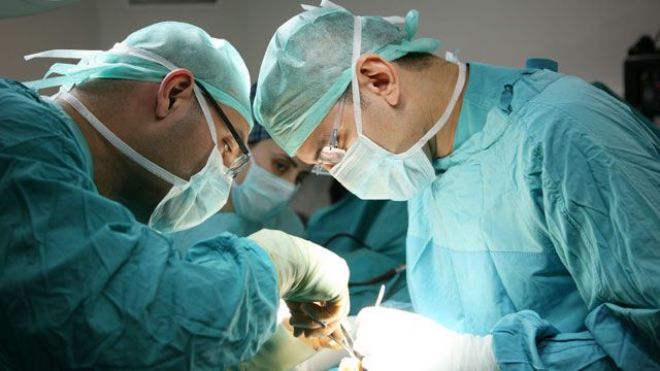Obesity surgery-diabetes study shows pros and cons
Obesity surgery worked much better at reducing and even reversing diabetes than medication and lifestyle changes in one of the most rigorous studies of its kind. But the researchers and others warn that possible serious complications need to be considered. The yearlong study indicates that the most common weight-loss surgery, gastric bypass, can effectively treat diabetes in patients with mild to moderate obesity - about 50 to 70 pounds overweight, the researchers reported Tuesday in the Journal of the American Medical Association. Other studies have shown the operation can reverse diabetes in severely obese patients, although sometimes the disease comes back. About a third of the 60 adults who got bypass surgery in the new study developed serious problems within a year of the operation, though some cases were not clearly linked with the surgery. That rate is similar to what's been seen in previous studies. But for the most serious complications - infections, intestinal blockages and bleeding - the rate was 6 percent, slightly higher than in earlier research. The most dangerous complication occurred in one patient when stomach contents leaked from the surgery site, leading to an overwhelming infection, leg amputation and brain injury. Lead author Dr. Sayeed Ikramuddin, an obesity surgeon at the University of Minnesota, called that case “a fluke.” A journal editorial says such devastating complications are rare, but that “the frequency and severity of complications ... is problematic” in the study and that the best way to treat patients with both obesity and diabetes “remains unknown.” A research review in the journal said more long-term evidence on risks and benefits is needed to determine if obesity surgery is an appropriate way to treat diabetes in patients who aren't severely obese - at least 100 pounds overweight. More than 20 million Americans have Type 2 diabetes; most are overweight or obese. Diabetics face increased risks for heart disease and strokes, and poorly controlled diabetes can damage the kidneys, eyes and blood vessels. About 160,000 people nationwide undergo various types of obesity surgery each year. Bypass surgery, the type studied, involves stapling the stomach to create a small pouch and attaching it to a lower part of the intestines. The American Society for Metabolic & Bariatric Surgery says obesity surgery is safe and that the death rate is less than 1 percent, lower than for gallbladder and hip replacement surgery. The study involved 120 patients at five hospitals in New York, Minnesota and Taiwan. All patients got medicines for diabetes, obesity, cholesterol and/or high blood pressure. They all were advised to cut calories and increase physical activity. Sixty patients also had surgery, and the two groups were compared after one year. The surgery group lost on average nearly 60 pounds and 75 percent lowered blood sugar levels to normal or near normal levels. The non-surgery group lost an average 17 pounds and just 30 percent reached the blood-sugar goal. The surgery group also needed less medication after the operation. The researchers say the diabetes changes were likely due to the weight loss but that hormonal changes affecting blood sugar may have contributed. The surgery group showed a trend toward having less high blood pressure and elevated cholesterol - both major risk factors for heart disease, although those between-group differences could have been due to chance. Ikramuddin, the lead author, said the study results don't mean that all mildly obese diabetics should have obesity surgery, but that “in the correct patient, surgery might be an important thing to consider.”source : http://www.foxnews.com/health/2013/06/05/obesity-surgery-diabetes-study-shows-pros-and-cons/

